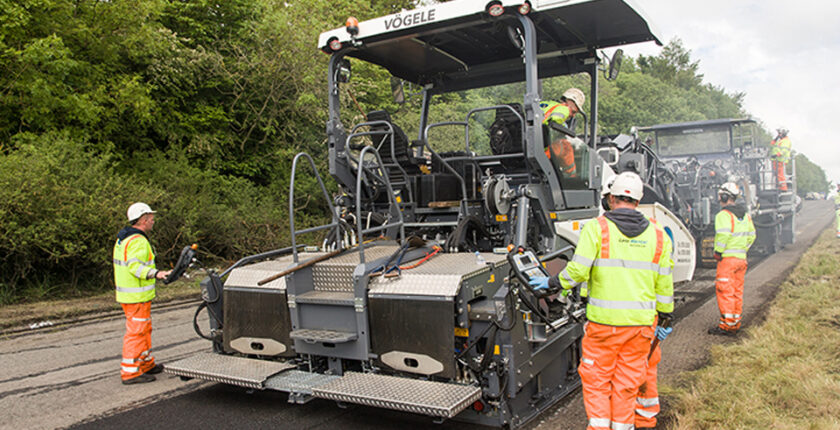New Road laying technology is 10 times faster (Video)
This post has already been read 3300 times!
Highways England’s contractors A-one+ are using pioneering technology to resurface just over a mile of the A1 at Brownieside in Northumberland.
The machinery being used for the first time in the UK allows the underlying layers of the road to be recycled, churning up the old surface material, combining it with new material within the body of the machine then laying it back down immediately on the road behind.
This new technology means that up to 1,000 tonnes per hour can be resurfaced compared to an average of 100 tonnes per hour using conventional methods.

As well as being able to resurface larger areas, there is also a 75% reduction in the amount of quarried stone used on the job, a 66% reduction in the amount of waste taken to landfill and there are 70% fewer lorry trips to and from site.
A full video of the new machine is below.
Highways England Project Manager Steve Bishop said:
This new technology is brilliant news for the thousands of drivers that use motorways and major A roads in the North East, who will benefit from smoother and safer journeys.
There are lots of benefits to using this new way of working. It means we can resurface larger areas of road, there are fewer construction vehicle trips and the road surface is designed to last for at least 10 years, meaning that we shouldn’t need to go back to carry out further repairs any time soon meaning less disruption for drivers.
This is the first machine of its type in the UK but the process is already successfully used in the USA, France and China. We are always working with our partners to trial new technologies that will help us to minimise disruption to drivers while we carry out essential road maintenance.
Currently to resurface a road, the old road surface is planed off and taken away on trucks as waste. The new material, which is often mixed off site, is brought in hot and is laid using a resurfacing machine. This is usually in truckloads of 20 tonnes with an average of 350 tonnes per shift being brought in altogether.
Work started at Brownieside on Tuesday 2 August and both lanes on the southbound carriageway are being resurfaced. The project is expected to take 3 weeks and work will be carried out during the day.
Temporary barriers are in place on the northbound carriageway of the A1 for the duration of the project to allow drivers to travel in both directions using a contraflow arrangement.


